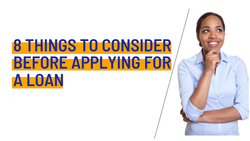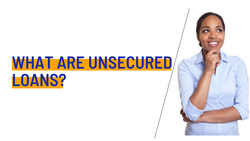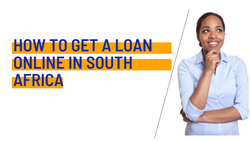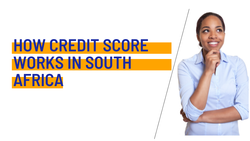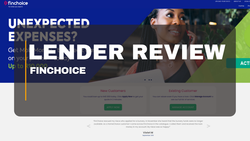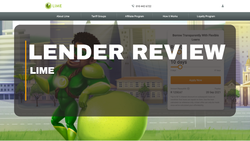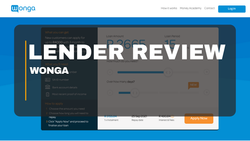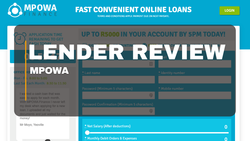There are several different types of loans to choose from when you reach a point in life needing financial assistance for something. No matter what kind of loan you take, they will get categorised between secured loans and unsecured loans.
What is an unsecured loan?
An unsecured loan is when the lender has no assets to hold onto in exchange for granting the borrower a loan. Because the lender's risk is substantially larger in this case than with secured loans, the lender will charge higher interest rates on these loans. Because of this, unsecured credit usually gets taken out to cover smaller loans, such as personal loans or short term loans.
Because lenders rely on your promise to pay them back, unsecured loans are typically dependent on your credit history and payment history, and other criteria that the lender considers.
On the other hand, a secured loan is one in which your lender accepts an asset (such as your car) as collateral to ensure that you will repay the debt.
How do unsecured loans work
Lenders want to know that you'll be able to pay back your debt on time. As a result, before approving your loan application, they'll assess your risk by looking at several factors:
- Credit Score: Credit scores get used by lenders to determine how likely you will repay a debt. When your credit score is high, you are more likely to qualify for lower interest rates and larger loan amounts.
- Income: Lenders want to ensure you earn enough money to repay the loan.
- Debt-to-income ratio: This ratio compares your current debt to your monthly income. Lenders use it to see if you're in too much debt to handle another loan. Your ratio should be as low as possible.
If you don't meet the requirements for an unsecured loan, a secured loan may be a better option. Secured loans are often easier to be eligible for as people who own property can use their homes as collateral.
Types of unsecured loans
Examples of unsecured loans are as follows:
- Microloan
- Credit card
- Retail store account
Advantages of unsecured loans
- You don't have to put up any collateral to secure the loan, which means you won't lose your assets if you default.
- For an unsecured loan, the processing time is significantly shorter. In most cases, banks and lenders will respond within a few hours.
- These loans can be used to cover a wide range of expenses, including large purchases and unforeseen repairs.
- Fixed interest rates and monthly payments are available on some personal loans, making budgeting easy.
- There's a wide range of payback options to repay the loan, ranging from 1 to 72 months, so you may choose the one that works best for you.
- You can qualify for several different loan amounts, ranging from R1,000 to R250,000.
Disadvantages of unsecured loans
- Interest rates are significantly higher than on secured loans. As a result, the loan amounts that are approved are typically lower than those that are secured.
- It's easy to go overboard with your spending. If you don't manage your credit card responsibly, you may soon find yourself in debt and unable to make your payments.
- Debt-to-income ratios are often more stringent. In other words, you won't be able to borrow as much, and the amount you may borrow will be directly proportional to your income.
How much do you need?
Get a Loan up to R500 000
Representative example: Myloan is an online loan comparison tool and not a credit provider. We only work with NCR-registered credit providers in South Africa. Our comparison service to consumers is free of charge. Estimated repayments on a loan of R30 000 over 36 months at a maximum annual interest rate of 28% would be R1 360 per month including an initiation fee and monthly service fees. Interest rates charged by credit providers may, however, start as low as 11%. Repayment terms can range from 6 to 72 months.

















